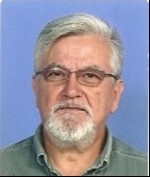FEATURED PAPER
By Prof. Dr. Brane Semolič
LENS Living Lab, Slovenia
and
Prof Dr Pieter Steyn
Cranefield College, South Africa
Summary
We live in a time of oversaturation with information and data that bombards us and is accessible at every step. This fact applies to all areas of human activity. It is information related to events in our immediate or broader social environment, the range of products and services, market trends, development activities, or something else. In addition to the benefits, such a mass of data and information also brings many problems. One such problem is their verification and, consequently, credibility, which brings a whole range of risks. These problems are not only present in laic environments, where various deceptions and misinformation of different social groups can occur. The problem is also present in professional circles, where such resources, professionally unverified in the broader environment, are used for various research and development needs and expertise, which are then used to guide the development activities of individuals, the economy, and society. This is already a problem that can cause a lot of confusion and deception in the development activities of the economy and society, which leads to the fact that the development efforts do not bring the expected benefits to all stakeholders. Moreover, they often introduce confusion and reduce the success of development efforts.
Due to the issues described, we decided to introduce in the first part some views and facts essential to understanding the phenomenon of Industry 4.0 and related issues that are the background for this article, where we are discussing the governance of virtual organizations.
Key words Technology innovations, organizational innovations, behavioral innovations, partnering, collaboration, collaboration platforms, digital platforms, digitalization, Industry 4.0, virtual organizations, program and project management, collaboratist leadership, governance
- Introduction
Technological innovation and economic development
In the first half of the last century, the Austrian American economist Schumpeter, who studied the theory of business cycles, wrote that innovations represent a crucial mechanism of economic change and development (Sweezy, 1943). This includes small, partial, or comprehensive changes in the observed economic environment. He illustratively called the most significant changes caused by technological discoveries, which cause changes in the techno-economic paradigm of the structure and functioning of existing economic-social systems, “gales of creative destruction.” It is about the emergence of entirely new technologies and related products, activities, systems, and industries made possible by such revolutionary technological innovations.
In literature, we find several classifications of technological innovations, their size, and their impact on the economic and social environment.
An example of such a well-known classification is Freeman’s classification, which distinguishes four types of innovation, namely (Monck C.& Co, 1988):
1 Incremental innovations – undramatic steady changes that occur continuously in most branches of industry and in services;
2. Radical innovations – discontinuous events that occur unevenly across sectors and through time;
3. Technological systems – combinations of radical innovations, coupled with organizational innovations across many firms. Such technology systems affect more than one branch of the economy and may spawn new sectors;
4. Technological revolutions – massive transformations associated with the diffusion of a new techno-economic paradigm involving radical innovations and new technological systems that have economy-wide applications and effects.
In Figure 1, we illustrate Freeman’s breakdown of technological innovation types and their areas of influence.
More…
To read entire paper, click here
How to cite this paper: Semolič, B. and Steyn, P. (2024). Governance of Industry 4.0 Virtual Organizations; PM World Journal, Vol. XIII, Issue IX, September. Available online at https://pmworldlibrary.net/wp-content/uploads/2024/09/pmwj145-Sep2024-Semolic-Steyn-Governance-of-Industry-4.0-Virtual-Organizations.pdf
About the Authors

Prof Dr Brane Semolič
Founder and Head of LENS Living Lab
International living laboratory
Celje, Slovenia
![]()
Brane Semolič studied mechanical engineering, engineering economics, and informatics; he holds a scientific master’s degree and doctorate in business informatics. His focus of professional interest is industrial and system engineering, innovation and technology management, virtual organizations and systems, project and knowledge management. He has 40 years of working experiences in different industries (industrial engineering, IT, chemicals, household appliances, government, and education), as an expert, researcher, manager, entrepreneur, counselor to the Slovenian government and professor. He operates as head of the open research and innovation organization LENS Living Lab. LENS Living Lab is an international industry-driven virtual living laboratory. He is acting as initiator and coordinator of various research and innovation collaboration platforms, programs and projects for the needs of different industries (ICT, robotics, laser additive manufacturing, logistics, education). He was co-founder and the first director of the TCS – Toolmakers Cluster of Slovenia (EU automotive industry suppliers). Since 2004 he is serving as the president of the TCS council of experts. Besides this, he is operating as a part-time professor at the Cranefield College.
He was head of project and information systems laboratory at the Faculty of Mechanical Engineering, Head of the Project & Technology Management Institute at the Faculty of Logistics, University of Maribor and professor of project and technology management at the graduate and postgraduate level. He acted as a trainer at the International »European Project Manager« post-graduated program, organized jointly by the University of Bremen.
He was the co-founder and president of the Project Management Association of Slovenia (ZPM), vice president of IPMA (International Project Management Association), chairman of the IPMA Research Management Board (2005-2012), and technical vice-chairman of ICEC (International Cost Engineering Council). He actively participated in the development of the IPMA 4-level project managers’ certification program. He introduced and was the first director of the IPMA certification program in Slovenia. He has been serving as the assessor in this certification program since 1997. He performed as assessor in the IPMA International PM Excellence Award Program in China, India, and Slovenia.
Brane is a registered assessor for the accreditation of education programs and education organizations by the EU-Slovenian Quality Assurance Agency for Higher Education. He was a Member of Strategic Advisory Board of European Competitiveness and Innovation, as well as the president of the Slovenian Chamber of Business Services. Brane received the award as ICEC Distinguished International Fellow in 2008. He received the »Silver Sign« for his achievements in research, education, and collaboration with the industry from the University of Maribor in 2015.
Professor Semolič is also an academic advisor for the PM World Journal. He can be contacted at brane.semolic@3-lab.eu. Additional information about the LENS Living Lab can be found at http://www.3-lab.eu/ .
To view other works by Prof Semolic, visit his author showcase in the PM World Library at https://pmworldlibrary.net/authors/brane-semolic/

Prof Dr. Pieter Steyn
Cranefield College
South Africa
![]()
Dr. Pieter Steyn is Founder and Principal of Cranefield College, a South African Council on Higher Education / Department of Education accredited and registered Private Higher Education Institution. Cranefield offers an Advanced Certificate, Advanced Diploma, Batchelor of Business Administration degree, Postgraduate Diploma, Master’s degree (MCom), and PhD. He holds the degrees BSc (Eng), MBA and Doctor of Commerce, and is a registered Professional Engineer.
He was formerly professor in the Department of Management, University of South Africa and Pretoria University Business School. He founded the Production Management Institute of South Africa, and in 1979 pioneered Project Management as a university subject at the post-graduate level at the University of South Africa. Prof Steyn also taught at the Chung-Shan Institute of Science and Technology in Taiwan as a guest lecturer.
He founded consulting engineering firm Steyn and Van Rensburg (SVR). Projects by SVR include First National Bank Head Office (Bank City), Standard Bank Head Office, Mandela Square Shopping Centre (all in Johannesburg), as also, Game City- and The Wheel Shopping Centres (in Durban). He, inter alia, chaired the Commission of Enquiry into the Swaziland Civil Service; and acted as Programme Manager for the Strategic Transformation of the Gauteng Government’s Welfare Department and Corporate Core.
Prof Steyn is a contributing author of the “International Handbook of Production and Operations Management,” (Cassell, London, 1989, ed. Ray Wild) and is the author of many articles and papers on leadership and management. He is a member of the Association of Business Leadership, Industrial Engineering Institute, Engineering Association of South Africa, and Project Management South Africa (PMSA); and a former member of the Research Management Board of IPMA. He serves on the Editorial Board of the PM World Journal. Moreover, he is the owner of the Aan’t Vette Wine Estate and De Doornkraal Vinotel (4-star hotel) in Riversdale, Western Cape.
Prof Steyn can be contacted at cranefield1@cranefield.ac.za. For information about Cranefield College, visit www.cranefield.ac.za.
To view other works by Prof Steyn, visit his author showcase in the PM World Library at https://pmworldlibrary.net/authors/dr-pieter-steyn/









